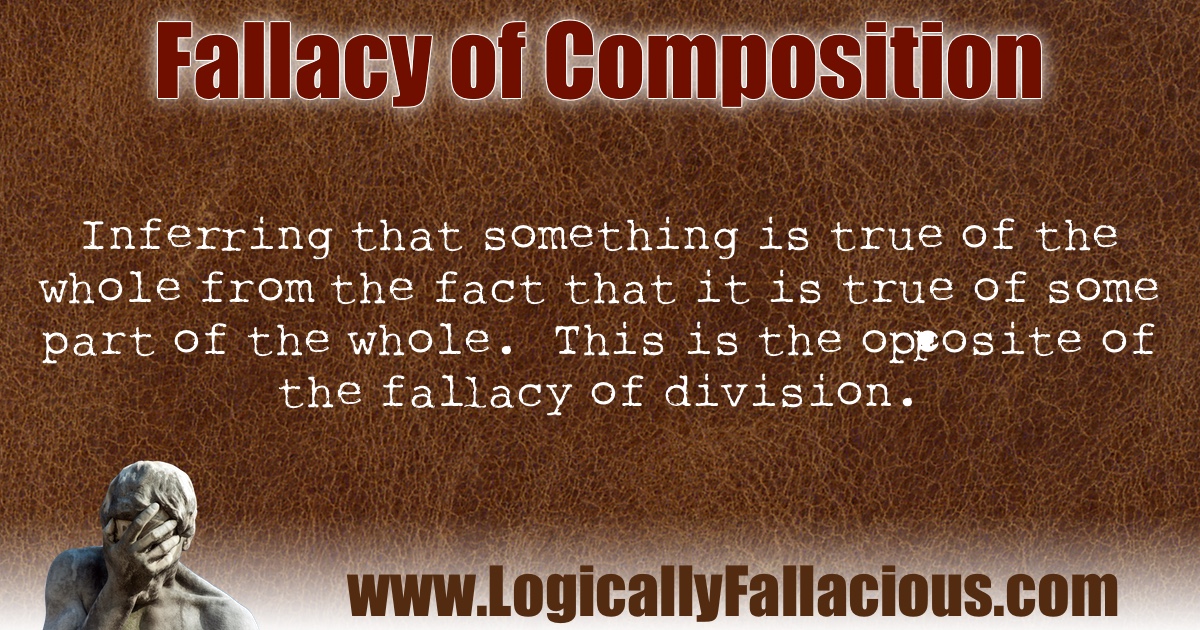(also known as: composition fallacy, exception fallacy, faulty induction)
Description: Inferring that something is true of the whole from the fact that it is true of some part of the whole. This is the opposite of the fallacy of division.
Logical Form:
A is part of B.
A has property X.
Therefore, B has property X.
Example #1:
Each brick in that building weighs less than a pound. Therefore, the building weighs less than a pound.
Example #2:
Hydrogen is not wet. Oxygen is not wet. Therefore, water (H2O) is not wet.
Example #3:
Your brain is made of molecules. Molecules are not the source of consciousness. Therefore, your brain cannot be the source of consciousness.
Explanation: I included three examples that demonstrate this fallacy from the very obvious to the less obvious, but equally as flawed. In the first example, it is obvious because weight is cumulative. In the second example, we know that water is wet, but we only experience the property of wetness when the molecules are combined and in large scale. This introduces the concept of emergent properties, which when ignored, tends to promote magical thinking. The final example is a common argument made for a supernatural explanation for consciousness. On the surface, it is difficult to imagine a collection of molecules resulting in something like consciousness because we are focusing on the properties of the parts (molecules) and not the whole system, which incorporates emergence, motion, the use of energy, temperature (vibration), order, and other relational properties.
Exception: If the whole is very close to the similarity of the parts, then more assumptions can be made from the parts to the whole. For example, if we open a small bag of potato chips and discover that the first one is delicious, it is not fallacious to conclude that the whole snack (all the chips, minus the bag) will be just as delicious, but we cannot say the same for one of those giant family size bags because most of us would be hurling after about 10 minutes of our chip-eating frenzy.
Tip: It is worth a few minutes of your time to research the topic of “emergence.”
